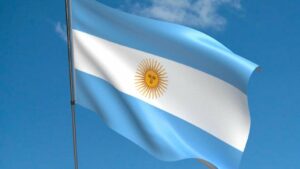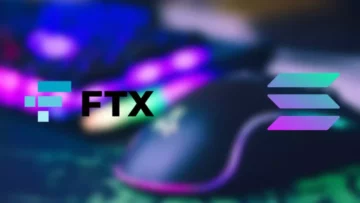
- In Africa, NFTs remain relatively unknown to the general population.
- Financial literacy and access to banking services are significant obstacles to NFT adoption in Africa.
- Africa boasts a rich cultural heritage, and NFTs provide an opportunity to protect and monetize traditional art forms, artefacts, and cultural practices.
Non-Fungible Tokens (NFTs) have emerged as a groundbreaking technology, revolutionizing various industries worldwide. These unique digital assets, built on blockchain technology, have gained significant attention for their ability to authenticate and tokenize digital or physical assets. While NFT adoption has witnessed remarkable growth globally, this article focuses on the challenges and opportunities surrounding NFT adoption in Africa. With its rich cultural heritage, diverse talent, untapped artists and unquantifiable potential, Africa holds immense promise for integrating NFTs across multiple sectors.
Challenges in NFT Adoption in Africa
Lack of awareness and education
In Africa, NFTs remain relatively unknown to the general population. There is a pressing need for comprehensive awareness campaigns and educational initiatives to bridge the knowledge gap. By conducting workshops, webinars, and educational programs, individuals can better understand NFTs and their potential benefits.
Infrastructure limitations
Access to stable internet connectivity is still challenging in many parts of Africa. Limited bandwidth, slow internet speeds, and high data costs hinder the widespread adoption of NFTs. Addressing infrastructure gaps, such as improving internet connectivity and expanding technological capabilities, is vital for facilitating seamless NFT transactions.
Economic barriers
Financial literacy and access to banking services are significant obstacles to NFT adoption in Africa. Many individuals lack the financial knowledge and tools to engage with NFTs effectively. Additionally, the affordability of purchasing and trading NFTs may exclude a considerable portion of the population. This is due to transaction fees and gas costs.
Intellectual property and copyright concerns
Intellectual property protection is critical for the successful adoption of NFTs in Africa. The continent currently lacks comprehensive legal frameworks that specifically address NFT ownership rights. This absence of regulations poses challenges in protecting creators’ rights and addressing copyright infringement or plagiarism issues associated with NFTs. We’ve seen other territories like the UK try to harmonize intellectual property law with NFTs.
Opportunities for NFT Adoption in Africa
Cultural Preservation and Empowerment
Africa boasts a rich cultural heritage, and NFTs provide an opportunity to protect and monetize traditional art forms, artefacts, and cultural practices. By tokenizing these assets, African artists and creators can secure their intellectual property rights, receive fair compensation for their work, and preserve their cultural legacy. NFTs empower creators to retain control over their art while offering a global platform for showcasing and selling their unique creations.
Economic inclusion and entrepreneurship
NFTs offer African creators and entrepreneurs new income generation and economic empowerment avenues. By leveraging NFT marketplaces, individuals can monetize their talents, reach international audiences, and establish sustainable businesses. These platforms enable cross-border trade, collaborations, and the creation of virtual marketplaces that transcend physical boundaries. NFTs can catalyze economic inclusion by providing opportunities for financial growth and independence.
Blockchain technology adoption
NFTs serve as a gateway for broader blockchain technology adoption in Africa. By engaging with NFTs, individuals become familiar with the principles of blockchain, which can drive the exploration and adoption of other decentralized applications and services. This, in turn, fosters financial inclusion by providing access to decentralized finance solutions and promoting transparent and secure transactions.
Case Studies and Success Stories
Highlighting successful NFT projects in Africa
In recent years, the world of non-fungible tokens (NFTs) has witnessed a significant rise in popularity and adoption. African artists and creators have not been left behind in this digital revolution. They have seized the opportunity to showcase their talent, gain recognition on a global scale, and generate income through the sale of NFTs.
Osinachi
One notable African artist who has successfully ventured into the NFT space is Osinachi, hailing from Nigeria. Osinachi’s vibrant and captivating artwork has captivated art enthusiasts worldwide, and his foray into the NFT market has only amplified his reach and impact. By tokenizing his art as NFTs, he has connected directly with collectors and art enthusiasts from various corners of the globe, transcending geographical limitations that traditional art markets often impose.
The global recognition and acclaim Osinachi has received are a testament to the power of NFTs in democratizing the art world and providing a platform for artists who may have otherwise faced barriers to entry. Through NFTs, African artists can showcase their unique perspectives, cultural heritage, and artistic expressions to a diverse global audience, fostering cross-cultural dialogue and appreciation.
Quidax Africa and Afen Blockchain Marketplace
Furthermore, the emergence of African-centric NFT marketplaces has played a crucial role in nurturing and promoting local talents. Platforms such as Quidax Africa and Afen Blockchain Marketplace have created spaces specifically tailored to the needs of African artists and creators. These marketplaces provide a supportive ecosystem that fosters creativity, connects artists with potential buyers, and facilitates the seamless exchange of digital assets.
By catering to African artists’ unique needs and aspirations, these platforms enable them to tap into the global NFT market while preserving and celebrating their cultural identities. The establishment of African-centric NFT marketplaces benefits individual artists. It contributes to the overall growth and development of the African art scene, fostering a sense of community and collaboration among creators.
The impact of NFTs on African artists and creators goes beyond financial gains. It has provided them with a platform to challenge conventional notions of value and ownership in art. By leveraging blockchain technology and the concept of provenance, NFTs offer artists a way to assert control over their creations, ensure authenticity, and receive royalties for future sales. This newfound control and empowerment have the potential to reshape the dynamics of the art industry and empower artists to navigate the digital age with confidence and agency.
The rise of NFTs has opened up exciting possibilities for African artists and creators, enabling them to gain international recognition, generate income, and assert ownership over their creations. With platforms like Quidax Africa and Afen Blockchain Marketplace championing African talent, the NFT ecosystem is evolving into a space where diverse voices and perspectives can thrive, fostering cultural exchange and innovation.
Lessons learned and best practices
Successful NFT adoption in Africa often involves community-driven initiatives and collaborations between artists, developers, and policymakers. By fostering supportive ecosystems, nurturing local talent, and establishing transparent governance frameworks, African countries can create an enabling environment for NFT adoption. Lessons learned from these endeavours can guide future efforts and inspire innovative approaches to leverage the potential of NFTs in Africa.
Overcoming the Challenges: Recommendations and Strategies
Government Support and policy frameworks
Governments play a crucial role in supporting NFT adoption in Africa. By collaborating with industry experts, policymakers can establish favourable regulatory environments that protect creators and investors while fostering innovation. Governments should also encourage public-private partnerships to drive infrastructure development and provide financial incentives for NFT-related initiatives.
Educational initiatives and awareness campaigns
Promoting NFT education should be a priority in schools, universities, and community centres across Africa. By integrating NFT-related subjects into curricula and hosting workshops, conferences, and meetups, individuals can gain the knowledge and skills necessary to participate in the NFT ecosystem. Furthermore, awareness campaigns should target both the general public and stakeholders, emphasizing the benefits and opportunities presented by NFTs.
Technological advancements and infrastructure development
Collaborating with tech companies and telecommunication providers is essential to improve internet connectivity and access to digital platforms. Efforts should be made to expand internet infrastructure, reduce data costs, and enhance technological capabilities to support NFT transactions. Moreover, partnerships with blockchain companies can facilitate the development of NFT-friendly infrastructure tailored to African needs.
Africa faces challenges in adopting NFTs, such as limited awareness, infrastructure limitations, economic barriers, and intellectual property concerns. The continent also presents significant opportunities for cultural preservation, economic empowerment, and technological advancement. By addressing these challenges, Africa can harness the full potential of NFTs. These challenges can be addressed through education, infrastructure development, and supportive policies. In so doing, Africa can empower its creators and entrepreneurs to thrive in the digital economy. With determination, collaboration, and a focus on inclusive innovation, Africa stands poised to make its mark in the global NFT landscape.
- SEO Powered Content & PR Distribution. Get Amplified Today.
- PlatoData.Network Vertical Generative Ai. Empower Yourself. Access Here.
- PlatoAiStream. Web3 Intelligence. Knowledge Amplified. Access Here.
- PlatoESG. Automotive / EVs, Carbon, CleanTech, Energy, Environment, Solar, Waste Management. Access Here.
- BlockOffsets. Modernizing Environmental Offset Ownership. Access Here.
- Source: https://web3africa.news/2023/06/23/news/nft-adoption-in-africa-challenges-and-opportunities/
- :has
- :is
- :not
- :where
- $UP
- a
- ability
- access
- across
- Additionally
- address
- addressing
- Adopting
- Adoption
- advancement
- advancements
- AFEN
- africa
- African
- age
- agency
- also
- among
- Amplified
- an
- and
- and infrastructure
- applications
- appreciation
- approaches
- ARE
- Art
- article
- artist
- artistic
- Artists
- artwork
- AS
- Assets
- associated
- attention
- audience
- audiences
- authenticate
- authenticity
- awareness
- Bandwidth
- Banking
- barriers
- BE
- become
- been
- behind
- benefits
- BEST
- Better
- between
- Beyond
- blockchain
- blockchain companies
- blockchain technology
- boasts
- both
- boundaries
- BRIDGE
- broader
- built
- businesses
- buyers
- by
- Campaigns
- CAN
- capabilities
- captivating
- Celebrating
- centres
- challenge
- challenges
- challenging
- championing
- collaborating
- collaboration
- collaborations
- collectors
- community
- Community Driven
- Companies
- Compensation
- comprehensive
- concept
- Concerns
- conducting
- conferences
- confidence
- connected
- Connectivity
- connects
- considerable
- continent
- contributes
- control
- conventional
- copyright
- copyright infringement
- corners
- Costs
- countries
- create
- created
- creation
- creations
- creativity
- creators
- critical
- cross-border
- crucial
- cultural
- Currently
- data
- decentralized
- Decentralized Applications
- Decentralized Finance
- Democratizing
- determination
- developers
- Development
- dialogue
- digital
- digital age
- Digital Assets
- Digital economy
- digital revolution
- directly
- diverse
- doing
- drive
- due
- dynamics
- Economic
- economy
- ecosystem
- Ecosystems
- Education
- educational
- effectively
- efforts
- emerged
- emergence
- emphasizing
- empower
- empowerment
- enable
- enabling
- encourage
- endeavours
- engage
- engaging
- enhance
- ensure
- enthusiasts
- entrepreneurs
- entry
- Environment
- environments
- essential
- establish
- establishing
- establishment
- evolving
- exchange
- exciting
- Expand
- expanding
- experts
- exploration
- expressions
- faced
- faces
- facilitate
- facilitates
- facilitating
- fair
- familiar
- Fees
- finance
- financial
- financial inclusion
- financial knowledge
- Focus
- focuses
- For
- Foray
- forms
- fostering
- frameworks
- from
- full
- Furthermore
- future
- Gain
- gained
- Gains
- gap
- gaps
- GAS
- gateway
- General
- general public
- generate
- generation
- geographical
- Global
- global audience
- global scale
- Globally
- globe
- Goes
- governance
- Governments
- groundbreaking
- Growth
- guide
- harness
- Have
- he
- heritage
- High
- hinder
- his
- holds
- hosting
- HTTPS
- identities
- immense
- Impact
- impose
- improve
- improving
- in
- Incentives
- inclusion
- Inclusive
- Income
- independence
- individual
- individuals
- industries
- industry
- industry experts
- Infrastructure
- infringement
- initiatives
- Innovation
- innovative
- inspire
- Integrating
- intellectual
- intellectual property
- International
- Internet
- into
- Investors
- issues
- IT
- ITS
- jpg
- knowledge
- Lack
- landscape
- Law
- learned
- left
- Legacy
- Legal
- Lessons
- Lessons Learned
- Leverage
- leveraging
- like
- limitations
- Limited
- literacy
- local
- made
- make
- many
- mark
- Market
- marketplace
- marketplaces
- Markets
- May..
- Meetups
- monetize
- Moreover
- multiple
- Navigate
- necessary
- Need
- needs
- New
- NFT
- nft market
- NFT Marketplaces
- NFT projects
- NFT space
- NFTs
- Nigeria
- non-fungible
- non-fungible tokens
- NON-FUNGIBLE TOKENS (NFTS)
- notable
- obstacles
- of
- offer
- offering
- often
- on
- only
- opened
- opportunities
- Opportunity
- or
- Other
- otherwise
- over
- overall
- ownership
- participate
- partnerships
- parts
- perspectives
- physical
- platform
- Platforms
- plato
- Plato Data Intelligence
- PlatoData
- Play
- played
- poised
- policies
- policy
- policymakers
- popularity
- population
- portion
- poses
- possibilities
- potential
- power
- practices
- presented
- presents
- preservation
- preserving
- pressing
- principles
- priority
- Programs
- projects
- promise
- promoting
- property
- Property Rights
- protect
- protect creators
- protecting
- protection
- provenance
- provide
- provided
- providers
- providing
- public
- purchasing
- Quidax
- reach
- receive
- received
- recent
- recognition
- recommendations
- reduce
- regulations
- regulatory
- relatively
- remain
- remarkable
- retain
- Revolution
- Revolutionizing
- Rich
- rights
- Rise
- Role
- royalties
- sale
- sales
- Scale
- scene
- Schools
- seamless
- Sectors
- secure
- seen
- seized
- Selling
- sense
- serve
- Services
- should
- showcase
- showcasing
- significant
- skills
- slow
- So
- Solutions
- Space
- spaces
- specifically
- speeds
- stable
- stakeholders
- stands
- Still
- studies
- success
- successful
- Successfully
- such
- support
- Supporting
- supportive
- Surrounding
- sustainable
- tailored
- Talent
- talents
- Tap
- Target
- tech
- tech companies
- technological
- Technology
- telecommunication
- territories
- testament
- that
- The
- the UK
- the world
- their
- Them
- There.
- These
- they
- this
- Thrive
- Through
- to
- tokenize
- tokenizing
- Tokens
- tools
- trade
- Trading
- traditional
- transaction
- Transaction Fees
- Transactions
- transparent
- try
- TURN
- Uk
- understand
- unique
- Universities
- unknown
- untapped
- value
- various
- vibrant
- Virtual
- vital
- VOICES
- Way..
- Webinars
- which
- while
- WHO
- widespread
- with
- witnessed
- Work
- Workshops
- world
- worldwide
- years
- zephyrnet













